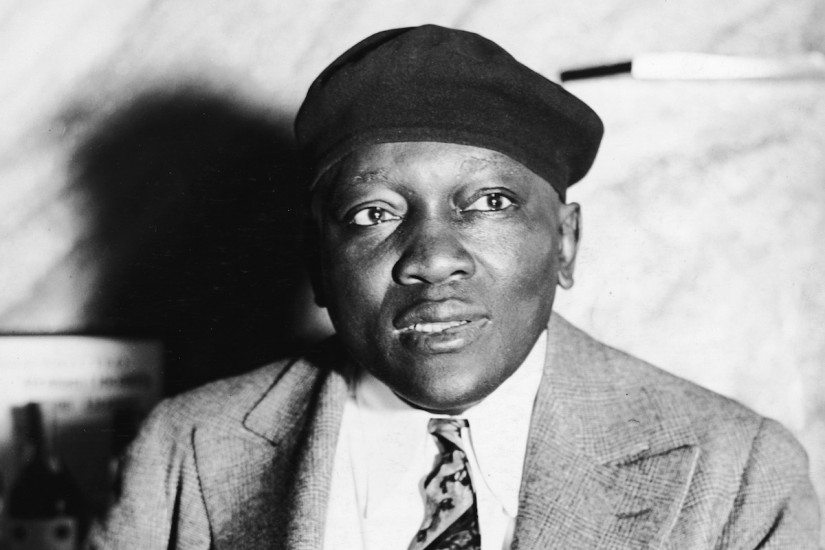On May 24, when Donald Trump pardoned Jack Johnson, boxing’s first black heavyweight champion, for a century-old criminal conviction motivated by racial malice, it was hard to tell what gave him more satisfaction: that he could exonerate a once world-famous athlete, or that he could exonerate himself from charges of racism. During the brief Oval Office ceremony, Trump flanked himself with star athletes real and imagined—most notably, Sylvester Stallone, of Rocky fame, whose phone call to the president in April put the pardon on Trump’s radar. Two weeks later, on June 8, Trump mused that he might pardon Muhammad Ali, too, for a criminal charge (refusing the Vietnam draft) that the Supreme Court had already overturned nearly four decades ago. Coming amid the president’s long-running feud with black NFL athletes, it seemed less that Trump had gained a soft spot for black men undone by racism, and more that he judged the symbolic pardoning of dead black athletes would provide him cover for his seething disdain for living ones.
At the Johnson pardoning ceremony, Trump shied away from actually naming the cause of Johnson’s 1913 conviction, racism, telling reporters that Johnson served ten months in prison for “what many view as a racially motivated injustice.” Who today could legitimately not view it that way? Johnson’s crime was to transport his white girlfriend, a one-time prostitute, across state lines, a violation of what was known as the White Slave Traffic Act. Though nominally intended to cut down on prostitution, the law only applied to white sex-workers, and, in Johnson’s case, the prosecution was meant to humiliate an athlete who gleefully defied the nation’s racial caste system—especially through his serial marriages to white women.
If some might have excused Trump’s vague description of Johnson’s crime—being black—as the awkwardness that many white people feel when discussing race, then they were denied that defense when Trump attacked President Obama for choosing not to pardon Johnson. Not even the Congressional Black Caucus could sway Obama, Trump told reporters: “They couldn’t get the president to sign it,” he said, clearly reveling in what he, and many of his supporters, took to be a delightful irony. “So I am taking this very righteous step.” But as reporters looked into Obama’s decision, one thing became clear: Johnson had a history of beating women, a fact that gave Obama pause. That Trump felt no such compunction did not merely reflect his misogyny; what Trump did not seem to realize, as he was basking in his righteousness, was that he, as a white man, had a privilege Obama did not.
